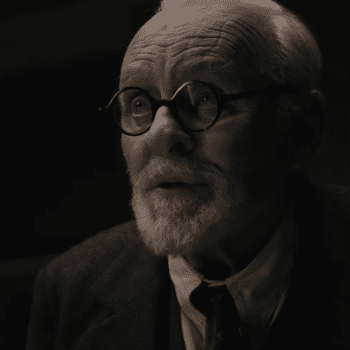
If you go to the movies, you know what’s needed to take on an evil overlord: A flame thrower.
Well, not always a flame-thrower. Sometimes it’s a light saber or a machete or a magic wand. The weapons don’t matter as much as the spirit of the thing: Heroes fight evil wherever they find it, even if—especially if—it means taking on The Man. We do love our rebels.
It’s a bummer that the Bible doesn’t share that love.
Take a spin through the New Testament, and you’ll find lots of verses that put a serious harsh on our affinity for rebels. “Let every person be subject to governing authorities,” Paul writes in Romans 13. “Obey your leaders and submit to them,” Hebrews tells us. When Jesus had a chance to tell off the Roman Empire for their brutal conquests and penchant for crucifixion, what did He do? He submitted to the authorities and was crucified himself. I don’t think that story would’ve ended quite the same way had it been directed by Quentin Tarantino.
And yet we know that, sometimes, you do need to fight against injustice. You do need to push back on the wrongs of that world. So, how do you fight The Man and submit to him at the same time? Can it even be done?
According to Hidden Figures, it can.
The movie, nominated for three Academy Awards, takes place in the early days of the United States’ space program. But even though the NASA employees in Langley, Va., are paving the ground for the 21st century, some feel like they’re still living in the 19th. The state of Virginia in 1961 is still very much segregated: Forget the possibility of a corner office if you’re a black woman working for NASA. You’ll have to make do with the corner.
Three women—Katherine Goble (Taraji P. Henson), Marky Jackson (Janelle Monáe) and Dorothy Vaughan (Oscar-nominated Octavia Spencer)—will change that.
If these three church-going wives and mothers rebel against racial prejudice, it’s a quiet rebellion. Graceful. Kind. They don’t war. They don’t riot. They don’t even protest, really. They simply do their jobs. And through their excellence and persistence, they slowly draw attention to the injustice they’ve faced every day of their lives.
What’s the boldest act of rebellion we see? It’s when Dorothy swipes a book from the white section of the public library—a book to teach her how to interact and program a newfangled, room-size machine called a computer. And when Dorothy’s son calls her on the library theft, she has a ready answer.
“Son, I pay taxes,” she tells him as they sit on the back of the bus. “And taxes paid for everything in that library. You can’t take something you’ve already paid for.”
Hidden Figures‘ heroines rebel against injustice, yes. But they do it within the system. It’s a flawed system, no question, full of prejudice that should’ve never been there. Every day, these women had to navigate a society built to exclude and diminish them. They lived a reality that I’ve never known. They could’ve accepted that system, as so many did. They could’ve sought to destroy it, as some were beginning to consider. Instead, they found a third way forward. They took steps to fix it.
It’s a pretty great message in a pretty good movie. And maybe it’s one we especially need to hear now, right when outrage is the watchword of the age.
“Freedom is never granted to the oppressed,” Levi Jackson, Mary’s angry husband, tells her one day. “It’s got to be demanded. Taken.” And maybe sometimes Levi’s right.
But Mary isn’t buying it. Not even in a place and time filled with institutional withering racism. “There’s more than one way to achieve something,” she tells him. And, at least in Hidden Figures, she’s right.













